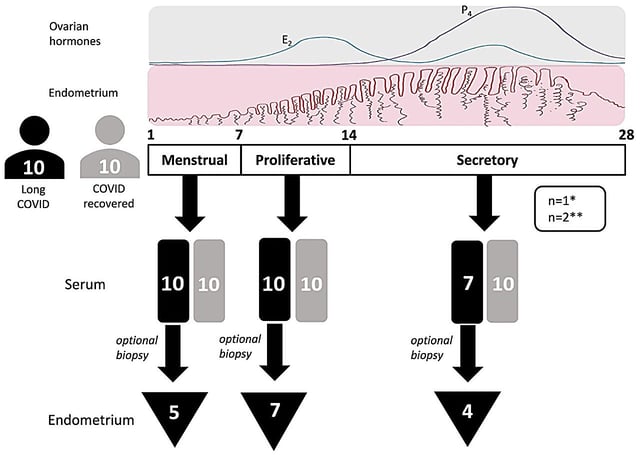Overview
- A University of Edinburgh–led Nature Communications study of 12,187 UK respondents found long COVID associated with heavier flow, longer bleeding and more intermenstrual spotting versus never‑infected controls.
- Prospective tracking of 54 participants showed fatigue, brain fog, dizziness, muscle pain and breathing issues typically worsened in the two days before and during menstruation.
- Small biological cohorts indicated higher secretory‑phase 5α‑dihydrotestosterone and reduced androgen and progesterone receptor expression in endometrium, alongside inflammatory changes.
- Ovarian function appeared intact, with estradiol, progesterone and anti‑Müllerian hormone levels comparable to controls.
- Authors urge evaluation for iron deficiency in those with heavy bleeding and call for larger, more diverse studies and trials of targeted anti‑inflammatory or androgen‑modulating treatments.



